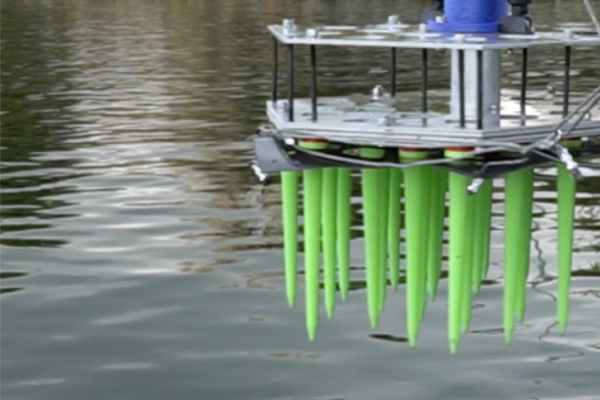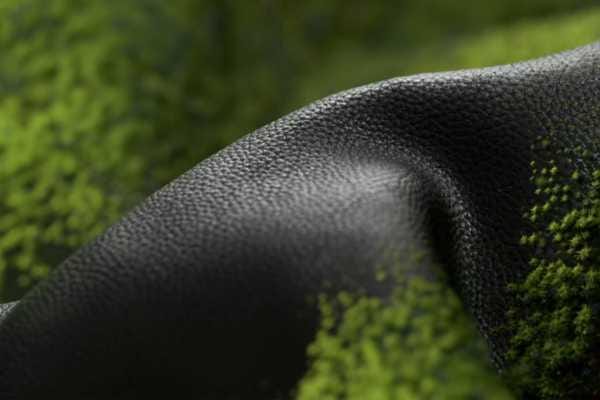Taking the fight to forever chemicals
The race is on to remove this stealthy and stubborn threat from the natural world.

The invisible threat of PFAS made world headlines earlier this year when a group of European politicians tested positive for the toxic chemicals.
And this week the Environmental Protection Agency (EPA) in the US took the unprecedented step of mandating that water providers across the nation reduce PFAS in drinking water to the lowest possible levels.
PFAS (or 'forever chemicals') are now being detected almost everywhere on Earth from the water we drink to the food we eat, and are increasingly being linked to a range of serious health issues (see techbox).
In January the European Environmental Bureau (EEB) and nonprofit ChemSec published the results of blood tests on several members of the European Parliament to highlight the pervasiveness of the chemicals.
Although the EU has one of the strongest chemical control systems in the world, the results found that all the test subjects were contaminated with PFAS – in some cases exceeding “levels of concern”.
The EEB said the results of its tests revealed an ongoing failure of chemical control across the region and an urgent need to impose regulations on these hazardous substances.
"I took this test because I wanted to help raise awareness of this simple fact: it may still take some time before PFAS are fully replaced, but it’s the right way to go."
Margrethe Vestager, Executive Vice-President of the European Commission and Commissioner for Competition, was one of the politicians who took the blood test, with seven of the 13 PFAS analysed found in her blood.
"I took this test because I wanted to help raise awareness of this simple fact: it may still take some time before PFAS are fully replaced, but it’s the right way to go,” she said.
According to the EEP, industry and political pressures have held back much-needed reform of EU chemicals control law. At the same time, class actions against corporations and governments are on the rise as heavily impacted communities around the world seek damages and remediation.
This month a huge financial settlement was finalised in the US that will see manufacturing giant 3M pay up to $US12.5billion over 13 years to US public water companies so they can identify and clean up PFAS in water supplies.
And while regulators around the world are working through the process of banning certain categories of PFAS, the race is on to develop cost-effective solutions to mitigate the harmful impact of those already in our environment.
To this end, several university researchers have been developing new techniques for removing PFAS from water sources with a range of approaches that include magnetic removal, applying adsorbing media and even 'nibbling' them with reagents (see coloured boxes below).
Spiky solution
EcoSpears is a US company rolling out its own novel solution that can be applied to both soil and water using technology born from the US space program.
Headed by former NASA engineer Sergie Albino, the startup says it’s on a mission to cleanse waterways and land of forever chemicals.
Specialising in the removal of PCBs, dioxins, and PFAS, its technology was developed in collaboration with NASA in what it describes as a departure from traditional, remediation methods such as excavation, transportation and incineration.
The underlying Spears technology was originally created to address contamination challenges at the Kennedy Space Center – and is now being deployed further afield in several locations including the Port of San Diego.

EcoSpears says its solution works similarly to a sponge. Individual spikes (or spears) are embedded within a mat and then left in the contaminated area to absorb PFAS, PCBs or other chlorinated pollutants from the water and sediment. It uses what EcoSpears describes as an ‘eco-friendly reagent’ to capture the contaminants.
“After approximately 12 months – or longer, if necessary – when the Spears are retrieved, they have effectively cleansed the environment of these hazardous molecules, ensuring their permanent removal,” Albino said.
The startup has so far raised US$3.1 million in funding over five rounds, mainly in the form of grants.
PFAS or per- and polyfluoroalkyl substances – are a broad class of synthetic chemicals that can resist extreme heat and corrosion. They are found in a huge range of products including waterproof textiles, non-stick pans, cosmetics and flame retardants. Because these chemicals are tightly bonded they don't break down easily so will accumulate in water and soil over time. Some types of PFAS have been linked to an array of ecological and health risks including cancer, immune disorders and environmental damage.





